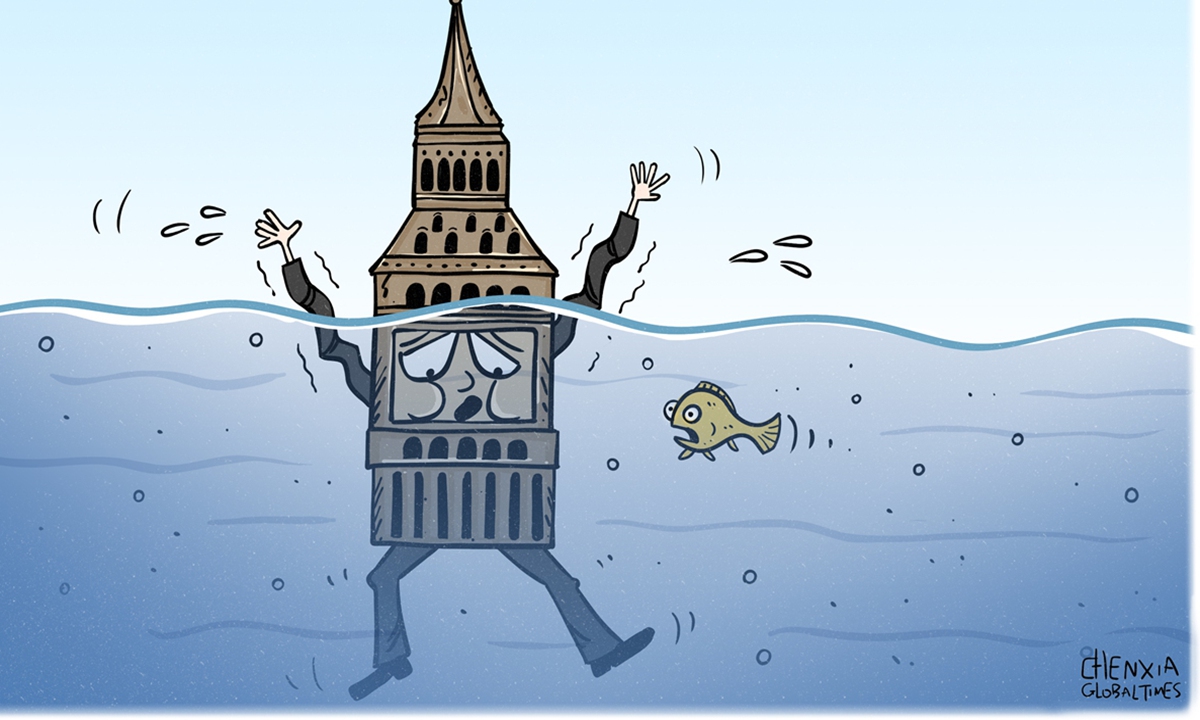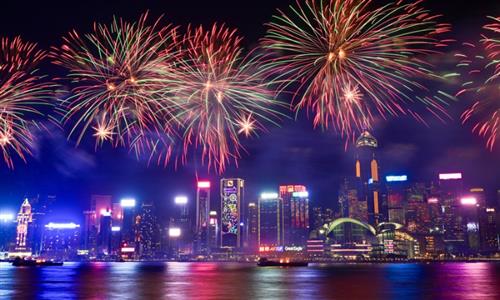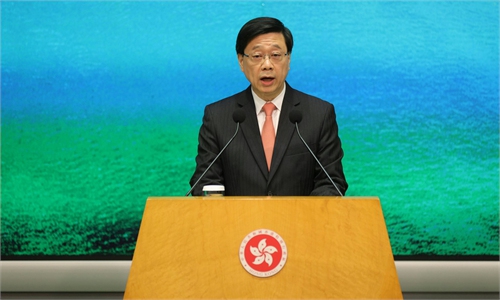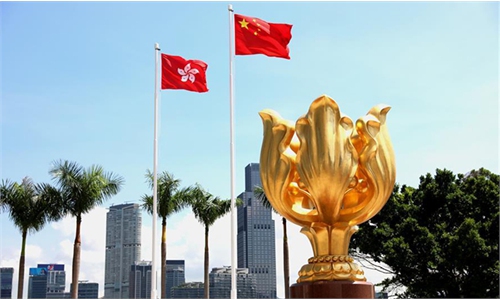Chinese officials rebut UK’s remarks on Article 23 legislation in Hong Kong
Britain ‘still lives in a fantasy world of old colonial era’ attempting to interfere in China’s internal affairs: experts

UK Illustration: Chen Xia/GT
Officials from both the Chinese mainland and Hong Kong voiced strong opposition on Thursday toward some malicious remarks made by some British politicians and anti-China groups on the highly-anticipated Article 23 legislation in Hong Kong Special Administrative Region (SAR), and some experts said Britain still lives in a fantasy world of the old colonial era, which lacks basic understanding and awareness of real political life.
Regarding social governance in Hong Kong, the British government may criticize and condemn under the guise of human rights and protection, but it deeply understands that they no longer have the genuine capacity or power to intervene in the future of the Chinese city, experts noted.
Following a statement made by UK Foreign Secretary David Cameron on the Article 23 legislation, who raised concerns on matters such as freedom of speech and clarity on procedures, the Chinese Foreign Ministry, the Commissioner's Office of China's Foreign Ministry in the HKSAR and the Chinese Embassy in the UK all expressed dissatisfaction and firm opposition.
The British statement constitutes gross interference in China's internal affairs and Hong Kong's affairs, once again exposing deep-rooted colonial and hegemonic attitudes which China firmly opposes, Mao Ning, spokesperson of the Chinese Foreign Ministry, said at a press conference on Thursday. "The so-called concerns and worries from the British side are entirely groundless," she said.
Cameron also cited the Sino-British Joint Declaration on Hong Kong in the statement, saying that the UK "has a responsibility to ensure that those rights and freedoms are maintained."
Firstly, the Sino-British Joint Declaration does not grant Britain any qualifications or rights to interfere in Hong Kong affairs. Secondly, one of the principles of enacting Article 23 legislation is to respect and safeguard human rights, legally protecting the rights and freedoms enjoyed by Hong Kong residents under the Basic Law of Hong Kong and relevant international conventions applicable to Hong Kong. Thirdly, the boundary between acts constituting crimes endangering national security and normal business activities, economic, cultural and technological exchanges is clear, the spokesperson said, noting that normal activities of foreign institutions and individuals in Hong Kong will be protected by law.
With the public consultation period for the Article 23 legislation having ended on Wednesday, local authorities in Hong Kong received a total of 13,147 submissions of opinions as of Wednesday, among which 98.64 percent support the legislation, the SAR's Security Bureau said on Thursday.
While 0.65 percent are purely questions or opinions that cannot reflect the authors' stance and among the 0.71 percent that oppose the legislative proposals, more than 10 are from overseas anti-China organizations or abscondees, the local authority said.
"It is a malicious attempt to smear the Article 23 legislation and undermine the rights, freedoms, and rule of law of the people of Hong Kong, which we strongly oppose and reject," Hong Kong lawmaker Elizabeth Quat Pui-fan told the Global Times on Thursday.
Enacting Article 23 legislation is a constitutional responsibility of Hong Kong, and supporting such legislation is a common consensus among various sectors of society, she said.
Quat emphasized that the Article 23 legislation is based on common law and does not affect judicial independence. Hong Kong's freedoms of the press, speech and assembly are all protected by the Basic Law and remain unaffected by the legislation, she noted.
"In fact, when formulating provisions related to offenses under Article 23, precise targeting of acts endangering national security is ensured with clear and high standards," the lawmaker said, noting that normal media reporting, commercial activities and external exchanges are unlikely to "cross the red line."
Secretary for Justice Paul Lam Ting-kwok also noted that local authorities will provide detailed definitions for some key and important terms in drafting the law including national security, foreign forces and collusion with foreign forces.
"Britain still lives in a fantasy world of the old colonial era, which lacks basic understanding and awareness of real political life, both culturally and in terms of national sentiment," Gao Jian, director of the Center for British Studies at Shanghai International Studies University, told the Global Times on Thursday.
"After Hong Kong's return to the motherland, the Sino-British Joint Declaration no longer serves as the fundamental principle governing the governance of Hong Kong in a legal sense and it has never stipulated that after Hong Kong's return to China, the British government still has the right to intervene and influence the social governance and political life of Hong Kong as a former colonial power," the expert said.
However, Cameron's views are merely reiterations of old arguments, especially since the social unrest in Hong Kong in 2019. The British government has consistently believed that, based on the Sino-British Joint Declaration, the UK still maintains political influence and interference in Hong Kong, a former colony. This viewpoint predominantly represents the basic stance of certain British political figures, particularly within the Conservative Party, since it originated from their political circles, Gao added.
The spokesperson from the Chinese Foreign Ministry also pointed out that the national security law implemented by the UK last year contains numerous vaguely defined provisions, granting broad powers to law enforcement agencies, which can easily be abused. "The UK side should adjust its attitude, acknowledge the reality of Hong Kong's return to China, cease interfering in Hong Kong affairs and engage in self-reflection, avoiding double standards," Mao said.
The British politicians may criticize and condemn the Hong Kong-related affairs under the guise of human rights and protection, but they must also understand that they no longer have the genuine capacity or power to intervene in the future social governance of the Chinese city, Gao said.




